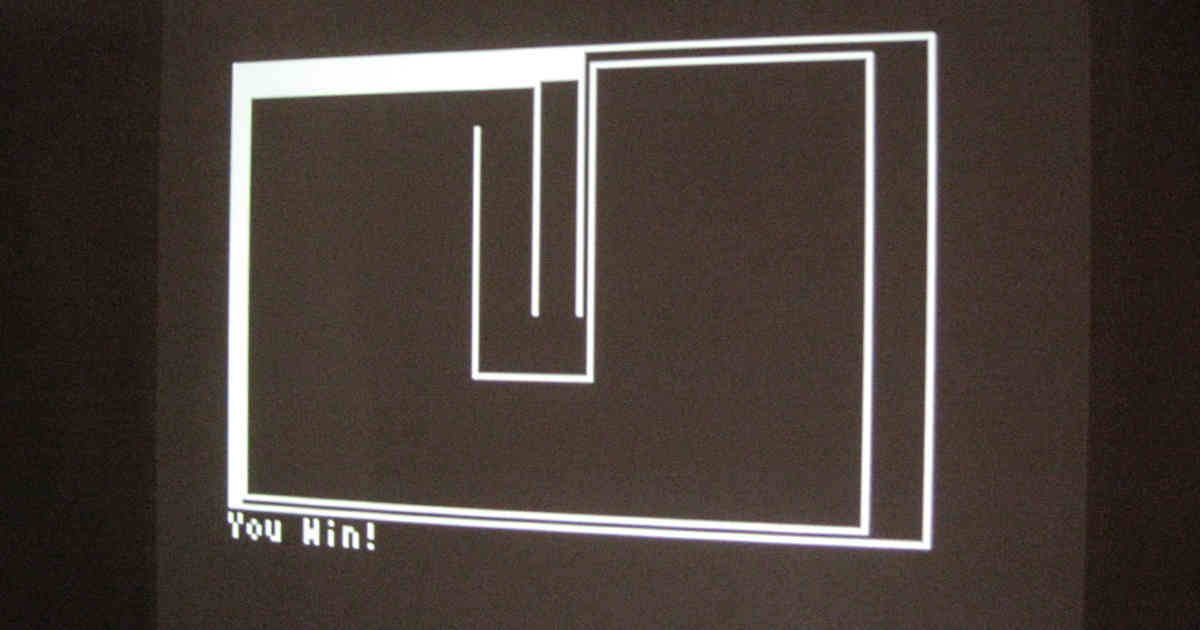“Change your life today. Don’t gamble on the future, act now, without delay.” Simone de Beauvoir
“Convictions are more dangerous foes of truth than lies.” Nietzsche
“Man is nothing else but what he makes of himself.” Sartre
I recently listened to one of the best speeches I have ever heard, by Bryan Stevenson, a MacArthur genius fellow and founder of the Equal Justice Initiative. He opened his speech by sharing his experience as a nine year old black kid experiencing the joy of jumping into a big swimming pool just after the “whites only” signs were removed by civil rights legislation. It so happened that there were a bunch of white kids in the pool when he and sister held hands and dove into those previously forbidden waters for the first time. No sooner had their feet hit the water than most of the white kids scrambled out screaming. Those few who remained were quickly jerked out by horrified parents who didn’t want their children in the same pool with “colored.”
Instead of being traumatized by the incident and drawing the conclusion “there must be something wrong with me,” Bryan proudly felt empowered by his ability to chase those white kids out of the pool. It was an existential moment. Bryan decided he was a powerful person and that he could make a difference. He certainly has done that. He graduated from Harvard Law School, became a professor at the New York University School of Law, is executive director of the Equal Justice Initiative, and founded the National Memorial for Peace and Justice in Alabama which honors the names of more than 4.000 African Americans lynched in 12 Southern states from 1877 to 1950. Named one of the Top 10 Non-Fiction titles in 2014, Just Mercy is Bryan Stevenson’s best-selling memoir about racial inequality.
Bryan’s story illustrates the impact of existential moments in our lives – when we decide who we are, what our purpose is, and what gives us meaning in life. Dostoevsky, Kierkegaard, Nietzsche, Sartre, Simone de Beauvoir, and Camus all contributed to the theory of existentialism. They helped us engage in deep contemplation and think about who we are, what our responsibility is to find meaning in life, and how to live life passionately and authentically. Not bad questions to live in I would say.
In this post, I want to explore how the narratives we create, the assumptions we make, and the comforts we seek help to define who we are and how we find meaning.
My wife is always creating narratives about people’s lives based on scant information. Her need to make up stories comes from a good place. She has an insatiable curiosity about peoples’ lives and wants to know their respective histories. She genuinely cares about people and remembers the most obscure details about their lives. My mind is continually blown when she recites a fact about someone that she had heard many years ago. Most of her narratives are the result of deep inquiry, but in the absence of any real data, she just creates made-up stories to satisfy her need to understand who they are. She stays open to facts that may run counter to her narrative.
In our community there is a reporter who cherry picks words from town meetings to create illusions of nefarious plots. She feasts on negativity. Her readers must have a narrative in their mind that makes our town look far more divided, contentious and dysfunctional than it really is. There is also a small band of citizens who create narratives to undermine any change initiatives or transformation efforts that are proposed to help the community. Their stories distract people from the work required to make meaningful changes. They speak behind the banner of responsible government while they trash people who are trying to make a positive difference. My narrative is that we live in an amazing community with incredible possibilities. I believe, of course, that my narrative is closer to the truth.
On a national level, Republicans and Democrats create narratives about each other that have resulted in complete polarization and gridlock. Both sides define the other as overly maleficent while describing themselves as completely righteous. Many people on the left describe those on the right as over-fed, under-read, and in-bred who believe all the conspiracy theories Fox feeds them. Many people on the right describe those on the left as elite, condescending, crazed socialists who want to take away their guns and meat. Neither of these narratives is particularly helpful.
The more people are identified with one party or the other, the more hostility boils up. It seems to me that real meaning and purpose get lost in that raging stew. When people assume the worst intentions in each other and take comfort in their own righteousness or the “rightness” of their particular tribe, relationships deteriorate. I believe over-identification in any form keeps us from reflecting upon who we are and who we want to be. More later.
As individuals, self-narratives also play a big role in our life. In narrative psychology, a person’s life story is the way a person integrates facts and events internally, weaving them together to make meaning. The self-narrative is a form of identity which reflects who we are. A life story doesn’t just say what happened; it says why events and relationships were important, what they meant for the person, and why they shaped who they are.
When I’m bantering with my buddy Gary, I can be playful, crass, and self-deprecating. When I’m presenting to executives, I tend to be more serious, analytical, and probing. In both cases, I try to stay true to who I am – a person committed to helping other people achieve their dreams and aspirations. I often fail.
The questions I would like to raise in this post are:
- How do assumptions influence our narratives?
- How does our need for comfort influence how we think and relate?
- How does identification keep us from entertaining new information and possibilities about who we are and where we might find meaning and purpose in our lives?
Assumptions: As a white, educated male, I’ve been the beneficiary of positive assumptions most of my life with two major exceptions. The first was when I returned home from the Vietnam War and many people assumed I was a baby-killing, war-monger. That hurt. And second, as I grow older, I’m feeling the sting of peoples’ assumptions that I’m irrelevant. I hear fewer questions about my point of view. When we make assumptions, we shut out the possibility of new insight. As our bubbles get smaller and smaller, our assumptions about “others” get larger and larger. My wish is that we would ask more questions and make fewer assumptions. Ask the right questions. Ask the hard questions. Ask any question.
Comfort: In the incredible book, Sum of Us, Heather McGhee cuts to the chase of racism. She suggests that it’s the comfort white folks find in their self-perceived superiority and innocence that motivates racist behavior. Any data that conflicts with those perceptions take them out of their comfort zones and thus trigger bellicose reactions. We also find comfort in our bubbles whether that’s a religious group, a political party, or a social media forum. In these bubbles, truth and accuracy derived from rigorous analysis are less important than attention and approval often gathered through misinformation. My wish is that we would venture more boldly out of our comfort zones instead of retreating more deeply into them.
Identification: In Chekhov’s short story, The Darling, Olenka, the wife, is so identified with her husbands (she married twice and assumed different identities each time) that she has no identity of her own. When her husbands die, she is left with nothing. No voice. No passion. No purpose. No meaning. Being over-identified makes us vulnerable to becoming like Olenka. Social media reinforces bubble life and the associated feelings of us vs. them.
Our cultural heritage, educational background, and team allegiances all give us a sense of identity that helps us navigate our worlds. When we become so identified with our roles, religions, and races, however, we run the risk of losing who we really are and why we exist. To me, the most essential question is “do we identify as humans having a spiritual experience or as spiritual beings having a human experience?” Everything evolves or devolves from that point. My wish is that we identify our identifications and free ourselves from them when they become too restrictive.
So how do we break free from the narratives, assumptions, comforts and identities that trap us and keep us from discovering who we really are? Let me use HOW as an acronym that may suggest some possibilities:
- Harmonize
- Open
- Welcome
If I can create harmony within myself and with others, it may be possible to reduce discord, division, and distrust so that I will feel free to pursue a larger purpose. Harmony makes us want to dance; discord makes us want to march. For me, the goal is to bring all of me to all of life in every moment.
If I am open to seeing things in different ways, then I may learn more about my fellow beings, so that we connect more deeply. In YoY o Ma’s Audible Memoire, the Beginning Mind, he shares how important it is to see the freshness and newness in each new day. Being open lets us learn and connect. Being closed keeps us imprisoned by the past and our prejudices.
If I welcome different ideas, revelations, and people into my life, then I will broaden my perspective and heighten my possibilities, so that I can experience more meaning and passion. Welcoming means letting go of limiting language and letting in new possibilities. Welcoming means that we embrace others in a way they feel they belong and are valued.
I’m not sure we will ever resolve these three pesky, existential questions:
- Who am I?
- What is my purpose?
- How can I find meaning in my life?
But I still have a lot of hopes.
I’m hoping we can all remember Bryan when we are feeling trapped and limited and frustrated by our narratives, assumptions, comforts and identities – may we jump into the pool of adversity and feel our power no matter what the reactions may be. I’m hoping as individuals, communities, and nations we can create narratives that lead toward common ground and sustainable growth. I’m hoping we will create more harmony in our lives, we will become more open to openness, and we will welcome being welcomed. I’m hoping we will see every moment as an existential one in which we challenge our convictions ( as Nietzsche implied) and make the kind of life we want (as Sartre said). Finally, I’m hoping (as de Beauvoir implores) that we will act now – without delay – to ask the hard questions of ourselves and others. May it be so.
Also published on Medium.



You’re the best Ricky! Thank you